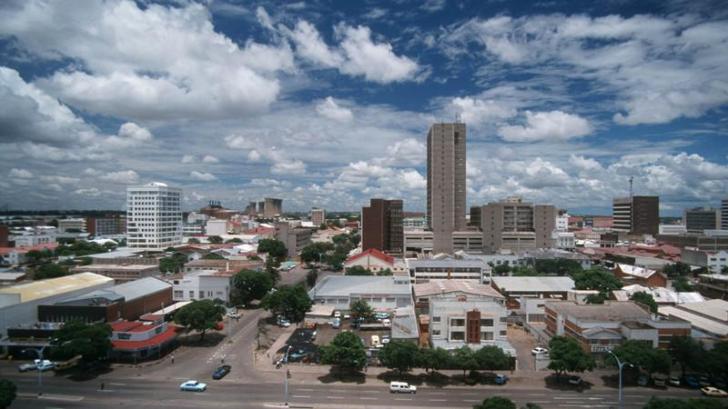News / National
BCC blitz uncovers 800 illegal shops in Bulawayo CBD
3 hrs ago | Views

A recent crackdown by the Bulawayo City Council (BCC) on lettable unit shops in the city's Central Business District (CBD) has revealed that about 800 out of more than 1 300 premises are operating without proper licences, placing them at risk of closure.
The operation, conducted from June 9 to 13 this year, targeted 1 323 lettable unit shops housed in 36 complexes. According to a council report, 66% of these units were unlicensed, with only 21% compliant, 5% closed, and 8% vacant.
The partitioning of buildings and warehouses into smaller lettable cubicles has become increasingly popular in Bulawayo and other urban centres, driven by growing demand from small and medium-sized enterprises (SMEs) for affordable workspace. While the trend has boosted the construction sector and created jobs, it has also raised concerns over city standards, infrastructure strain, and competition with established businesses.
Councillors have called for the blitz to continue in order to plug revenue leakages. Ward representative Lazarus Mphadwe stressed the importance of enforcing compliance, while Councillor Susan Sithole warned that illegal operators, particularly food outlets, often survive by bribing law enforcement officers, fostering corruption and depriving council of much-needed income.
The report also highlighted the need to strengthen the council's shop licensing section by providing it with modern tools such as new computers and printing equipment, noting that the department plays a key role in shaping the municipality's public image.
The Bulawayo operation follows a similar exercise in Harare earlier this month, where 190 non-compliant businesses were shut down for lacking licences, fire compliance certificates, and other operational requirements.
Debate over the regulation of informal retail also extended to residential areas, with some councillors calling for the regularisation of spaza shops. Councillor Adrian Rendani Moyo supported a policy review to allow controlled construction and licensing of spazas, while Councillor Royini Sekete opposed the move, warning of potential illegal activities.
Chamber Secretary Sikhangele Zhou reminded councillors that spaza shops in residential areas remain illegal under current policy, adding that food vending is prohibited from unlicensed premises and braaing of meat is only permitted in licensed butcheries. She noted that council shop licences are affordable, with small shops paying as little as US$167 per year, depending on floor size.
Town Clerk Christopher Dube suggested that Bulawayo could consider policy reforms similar to those in South Africa, where spaza shops are formally recognised, provided all building plans are submitted and approved before construction.
The operation, conducted from June 9 to 13 this year, targeted 1 323 lettable unit shops housed in 36 complexes. According to a council report, 66% of these units were unlicensed, with only 21% compliant, 5% closed, and 8% vacant.
The partitioning of buildings and warehouses into smaller lettable cubicles has become increasingly popular in Bulawayo and other urban centres, driven by growing demand from small and medium-sized enterprises (SMEs) for affordable workspace. While the trend has boosted the construction sector and created jobs, it has also raised concerns over city standards, infrastructure strain, and competition with established businesses.
Councillors have called for the blitz to continue in order to plug revenue leakages. Ward representative Lazarus Mphadwe stressed the importance of enforcing compliance, while Councillor Susan Sithole warned that illegal operators, particularly food outlets, often survive by bribing law enforcement officers, fostering corruption and depriving council of much-needed income.
The Bulawayo operation follows a similar exercise in Harare earlier this month, where 190 non-compliant businesses were shut down for lacking licences, fire compliance certificates, and other operational requirements.
Debate over the regulation of informal retail also extended to residential areas, with some councillors calling for the regularisation of spaza shops. Councillor Adrian Rendani Moyo supported a policy review to allow controlled construction and licensing of spazas, while Councillor Royini Sekete opposed the move, warning of potential illegal activities.
Chamber Secretary Sikhangele Zhou reminded councillors that spaza shops in residential areas remain illegal under current policy, adding that food vending is prohibited from unlicensed premises and braaing of meat is only permitted in licensed butcheries. She noted that council shop licences are affordable, with small shops paying as little as US$167 per year, depending on floor size.
Town Clerk Christopher Dube suggested that Bulawayo could consider policy reforms similar to those in South Africa, where spaza shops are formally recognised, provided all building plans are submitted and approved before construction.
Source - The Chronicle










































